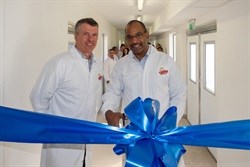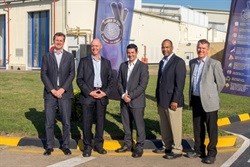
Top stories
More news




















With the two other Simba plants located in Gauteng and the Western Cape, the Prospecton plant is strategically positioned to ensure a strong regional presence while providing the opportunity for future expansion.
The plant currently provides permanent employment for over 90 staff, with a majority of the current staff complement at the plant consisting of graduates specifically from the DUT and local FET colleges, who have found first time employment with the company.

Simba's Business Unit CEO, Alan Henderson officially opened the new plant on 10 June 2014. Manufacturing director, Andrew Havinga said, "We have seen demand for our products grow for a number of years now and our new facility will help us meet this demand and better serve the needs of our valued retail partners and other customers. This is a milestone achievement for the South African business and I would like to thank everyone who has worked so hard to make it happen. It has taken 484 000 project man hours to complete the project and bring some of the world's latest manufacturing technology to South Africa."
The advanced technology employed will ensure the plant produces to its optimal performance levels, while still operating as a highly efficient and environmentally stable operation. This includes processes to increase the efficiency of the machinery, while reducing electricity consumption and ensuring increased water reuse (limiting the drain on critical natural resources). The plant also has a strict recycling initiative in place and aims to achieve approximately 90% recyclable waste in the first year, which will significantly reduce what is sent to local landfill sites.